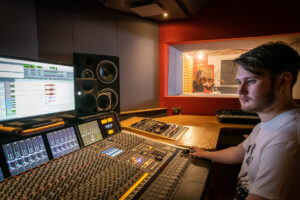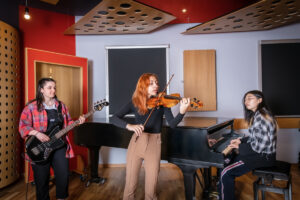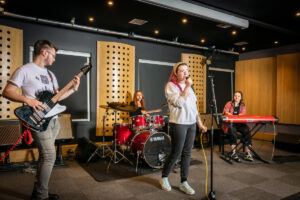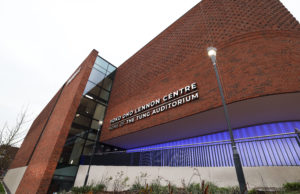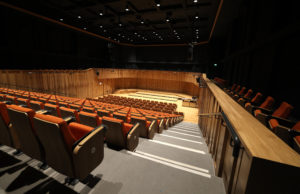How you'll learn
The MA Composition for Film, TV and Games programme is split into two pathways: research and practical. Teaching on the MA programme is delivered primarily through a combination of lectures, workshops, and seminars, as well as guest lectures and workshops with external partnerships. All teaching takes place on campus. In semester 3, students develop portfolios and research projects with guidance from a specialist supervision team. Assignments encompass a wide range of topics and can be focussed towards written or audiovisual research projects, or more practical projects involving music composition, VR environments, and/or sound design. Lectures and seminars focussing on career development and professional skills encourage students to think about and prepare for employment (or self-employment) after the course.
How you're assessed
Students on the MA Composition for Film, TV and Games programme are assessed through a combination of formative and summative coursework, including screen music portfolios, self-reflective commentaries, essays, audiovisual essays, and musical scores.
Liverpool Hallmarks
We have a distinctive approach to education, the Liverpool Curriculum Framework, which focuses on research-connected teaching, active learning, and authentic assessment to ensure our students graduate as digitally fluent and confident global citizens.
The Liverpool Curriculum framework sets out our distinctive approach to education. Our teaching staff support our students to develop academic knowledge, skills, and understanding alongside our graduate attributes:
- Digital fluency
- Confidence
- Global citizenship
Our curriculum is characterised by the three Liverpool Hallmarks:
- Research-connected teaching
- Active learning
- Authentic assessment
All this is underpinned by our core value of inclusivity and commitment to providing a curriculum that is accessible to all students.
